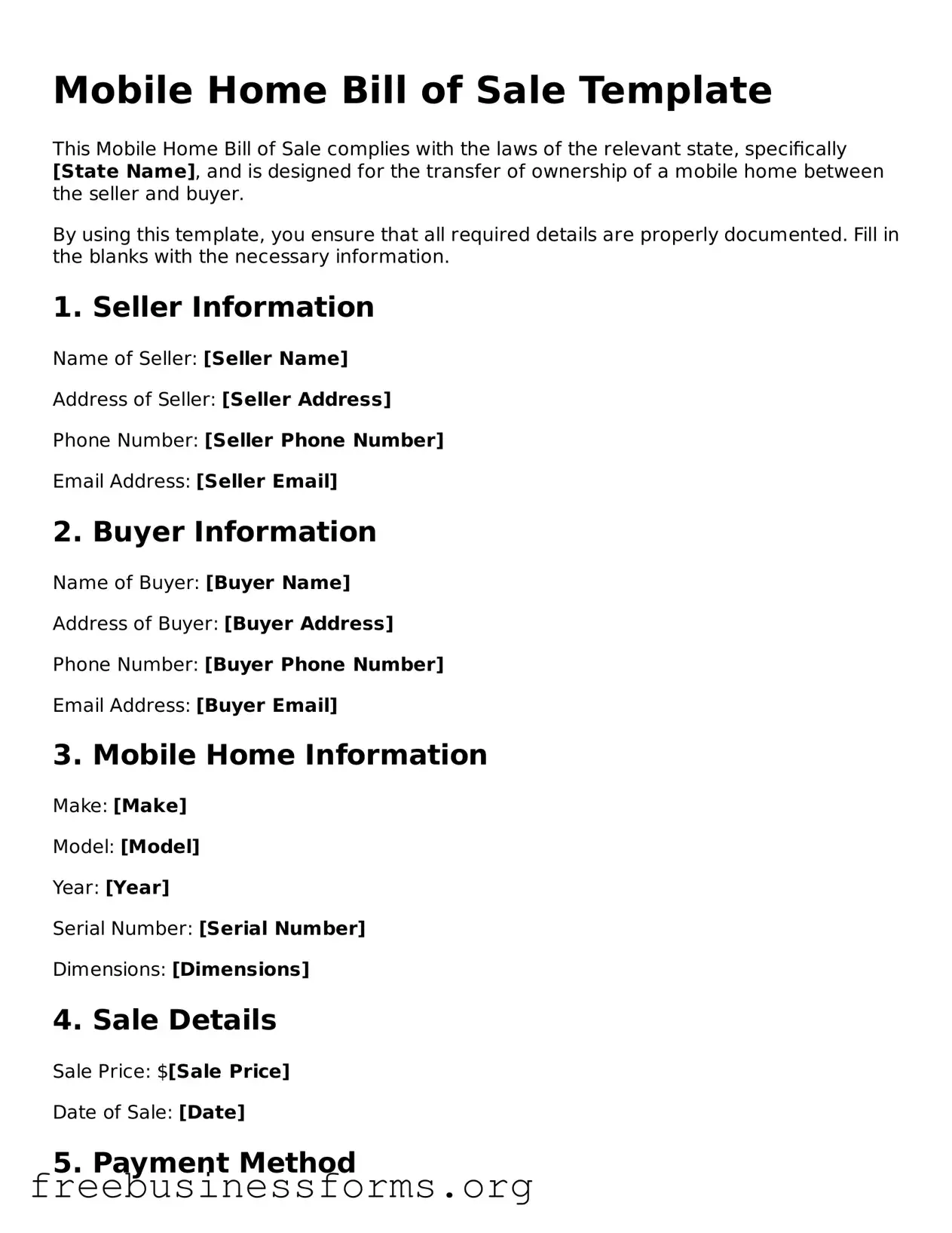Official Mobile Home Bill of Sale Form
A Mobile Home Bill of Sale is a legal document that records the transfer of ownership of a mobile home from one party to another. This form outlines essential details such as the sale price, the condition of the mobile home, and the information of both the seller and buyer. Having a properly completed bill of sale can help protect the interests of both parties involved in the transaction.
Open Form Here

Official Mobile Home Bill of Sale Form
Open Form Here

Open Form Here
or
↓ PDF File
Quickly complete this form online
Complete your Mobile Home Bill of Sale online quickly — edit, save, download.